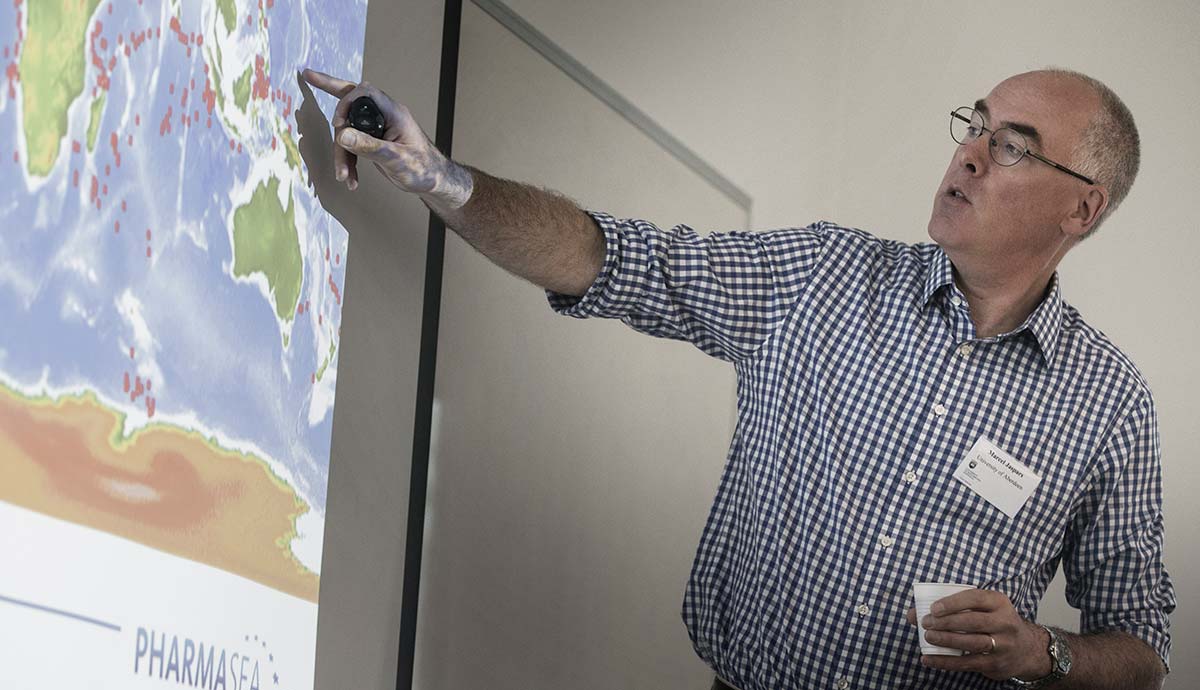July 21, 2016
Unlocking Australia's deep-sea potential
UOW hosts international workshop on biodiscovery in the deep-sea.
More than 25 researchers from Australia, New Zealand and the UK descended on ÁñÁ«ÊÓƵapp this week to discuss the untapped potential of Australia’s deep sea.
Bringing together a range of experts, including lawyers, biologists, chemists and policy specialists, the interdisciplinary UOW Global Challenges workshop focused on how deep-sea exploration could support the development of new drugs, help inform approaches to conserve deep-sea ecosystems and advance Australia’s blue economy.
Workshop organiser and leader of the Global Challenges project ‘Drugs From The Deep?’ Harriet Harden-Davies said the deep-sea is the largest biosphere on the Earth yet it remains largely unexplored.
“Australia has the third largest marine jurisdiction in the world, with the largest number of endemic marine species. More than 25 per cent of deep-sea natural products described have been discovered in our waters. There’s huge potential for drug discovery and use in other biotechnology products.”
However, the Australian National Centre for Ocean Resources and Security PhD student, who is investigating the governance of marine genetic resources in areas beyond national jurisdiction, said harnessing the potential of these ‘genetic resources’ is complex.
“If we can get the international and national governance framework for marine genetic resources right, it could have wide impacts for science, business and conservation.”
“But there are a number of scientific, technical, legal, policy issues to work out.”
“For example, research vessels and technology needed to investigate the deep sea are limited in Australia and there are unresolved legal questions around marine genetic resources. Collaboration is key to understanding and conserving the deep-sea.”
Medicinal chemist Associate Professor Danielle Skropeta said most people don’t realise that around 50 per cent of cancer drugs and more than 75 per cent of drugs used for treating infectious diseases are derived from natural products – chemicals found in plants and animals.
“Deep sea-life is highly diverse having evolved over billions of years. These organisms harbour a complex and varied array of substances with high potential for use in drug development.”
Professor Skropeta has been working with oil and gas companies to utilise their remotely operated underwater vehicles (ROVs) to explore the deep-sea off the coast of Western Australia as part of the international
The team has collected many deep-sea organisms, which Professor Skropeta is currently testing for bioactivity to see if they could be used as new treatments for cancer.
The workshop attracted prominent scientist Professor Marcel Jaspars (pictured), who recently established the Marine Biodiscovery Centre at the ÁñÁ«ÊÓƵapp of Aberdeen in the UK.
He highlighted that although we have put 15 people on the moon, we have only sent three people to the deepest parts of our ocean. With so much still unknown and so much potential for new scientific findings that could have major implications in health, understanding of climate change and the earth’s history, there is a compelling need for further funding and support of deep-sea investigation.
